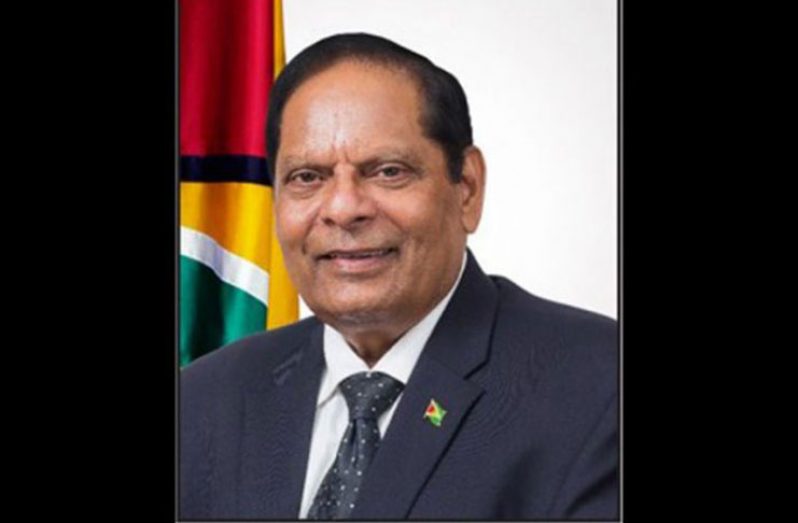THE Constitutional Reform Consultative Commission Bill No. 9 of 2017 was presented to the National Assembly for the first time by Prime Minister Moses Nagamootoo, paving the way for the administration to engage stakeholders in radical changes to the country’s Supreme law.
Upon the request of the Prime Minister, the bill has been referred to the Parliamentary Standing Committee for Constitutional Reform for consideration and report. When the bill is passed in the House, it would pave the way for the establishment of a Constitutional Reform Consultative Commission that will assist the Parliamentary Standing Committee for Constitutional Reform in the execution of its work.
As such, it would be responsible for conducting public consultations with and receiving submissions from the people of Guyana on behalf of the Committee. Consultations will be conducted in the 10 Administrative Regions.
“It is the aim of the Government to reform the Constitution to the point where it is more inclusive, democratic and transparent, removing all anomalies, having received the input from stakeholders, the Commissioners and having considered and evaluated the submissions from the people of Guyana and acquired the benefits resulting from pubic consultations,” an explanatory memorandum attached to the bill stated.
According to the proposed legislation, the 15-member commission will be appointed by the President, however, four members – two constitutional law experts, a retired judge and a law tutor – will be selected by the President based on his own deliberate judgment after conducting such consultations as he sees fit.
The 11 other members will include a nominee from each of the Parliamentary Parties, Trade Union Movement, Youth Organisations, the Guyana Bar Association, the Guyana Association of Women Lawyers, one each from the Christian, Hindu and Muslim Organisations, Women Organisations and the National Toshao’s Council.
If an entity fails to make a nomination, the bill once passed, will allow for the President to appoint a member to represent that entity after due consideration.
The nominees will be selected based on their experience, knowledge of the constitution, commitment, academic expertise and practical expertise.
A Secretariat, headed by a Secretary, will also be established to support the work of the commission.
In assisting the Standing Committee, the Commission, under the proposed legislation, will be mandated to consider the scope of constitutional reform necessary to allow for more inclusive, democratic and transparent governance.
Additionally, it will address any anomaly, redundancy or any aspect of the Constitution that need attention.
“The Commission shall have the power to conduct any inquiry or investigation within its terms of reference in the manner, time and place it thinks fit with power to adjourn from time to time and from place to place, giving due notice to the public,” a section of the bill states.
Additionally, the bill states that upon completion of its work, the Standing Committee will review and evaluate the periodic reports of the Commission, prepare a final report inclusive of recommendations for submission to the National Assembly for approval.
The Commission will be financed with funds from the Consolidated Fund however; it would be allowed to accept donations or monetary contributions from international agencies.
The A Partnership for National Unity + Alliance For Change (APNU+AFC) Government, through the Office of the Prime Minister, had set up the Steering Committee on Constitutional Reform (SCCR) led by Nigel Hughes.
Last year, SCCR submitted its report to Prime Minister Nagamootoo and the bill was subsequently drafted and reviewed. The Coalition Government views the laying of the Constitutional Reform Consultative Commission Bill in the National Assembly as a major advancement in the process towards Constitutional Reform.
During a visit to Guyana in April, a United Nations (UN) delegation had said that the process of constitutional reform creates an opportunity for social cohesion and nation-building. The UN delegation expressed the view while presenting its findings on the Constitutional Reform process to Prime Minister Nagamootoo. That report addressed the risks associated with the process of Constitutional Reform on the basis that Guyana has a history of racial division and ethnic-political conflict.



.jpg)








